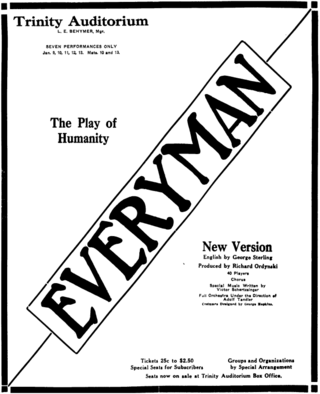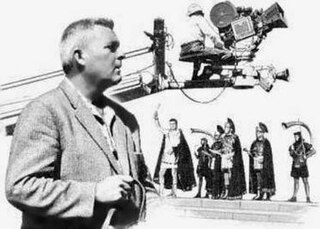Related Research Articles
The year 1962 involved some significant events in television. Below is a list of notable events of that year.

Carroll Vincent Newsom (1904–1990) was an American educator who served as the eleventh NYU president and president of Prentice Hall.

George James Hopkins was an American set designer, playwright and production designer.

Russell Metty, A.S.C. was an American cinematographer who won the Academy Award for Best Cinematography, Color, for the 1960 film Spartacus.
Leopold Horace Ognall, known by the pen names Hartley Howard and Harry Carmichael, was a British crime novelist. Ognall was born in Montreal and worked as a journalist before starting his fiction career. He wrote over 90 novels before his death in 1979. The private eye Glenn Bowman was one of his most successful characters. As Harry Carmichael, Ognall's primary series characters were John Piper and Quinn, a crime reporter.

The Vanguard Press was a United States publishing house established with a $100,000 grant from the left wing American Fund for Public Service, better known as the Garland Fund. Throughout the 1920s, Vanguard Press issued an array of books on radical topics, including studies of the Soviet Union, socialist theory, and politically oriented fiction by a range of writers. The press ultimately received a total of $155,000 from the Garland Fund, which separated itself and turned the press over to its publisher, James Henle. Henle became sole owner in February 1932.
The Secretary of the Navy's Advisory Subcommittee on Naval History was formally established in 1956 and is the second oldest of the historical advisory committee's within the United States Department of Defense.
Clifford Cook Furnas was an American author, Olympic athlete, scientist, expert on guided missiles, university president, and public servant. He was first cousin of the author Evangeline Walton. Furnas participated in the 5,000-meter event at the 1920 Olympic Games in Antwerp, Belgium.
Sven Rudolf Sidenius Gyldmark was a Danish film score composer. He was the brother of Hugo Gyldmark and Leonard who were also composers.

The mayor of the City of Wichita is the head of the executive branch of the Wichita, Kansas city government. The mayor serves a four-year term and is limited to two successive terms.
Public Affairs Press was a book publisher in Washington, D.C., owned and often edited by Morris Bartel Schnapper (1912–1999).
References
- ↑ Elizabeth A. Brennan & Elizabeth C. Clarage, Who's Who of Pulitzer Prize Winners (Oryx Press, 1999): 37.